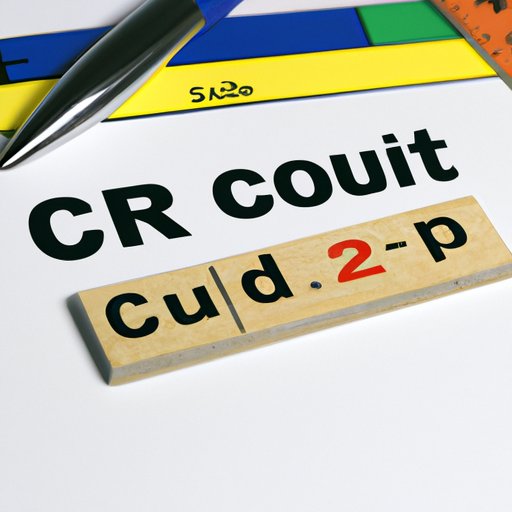
Introduction
Having a low credit score can make it difficult to get approved for loans, credit cards, and even rentals. A good credit score can save you thousands of dollars over time, making it crucial to build it up. In this article, we will explore strategies to help you build your credit score and maintain a healthy credit profile.
How Credit Scores Work
Credit scores are calculated by credit reporting agencies such as Equifax, TransUnion, and Experian. FICO, which stands for Fair Isaac Corporation, is the most widely used credit scoring model. FICO scores range from 300 to 850, and a score of 700 or higher is considered good.
The factors that impact your credit score include payment history, credit utilization, length of credit history, types of credit used, and recent credit inquiries. Payment history accounts for 35% of your credit score, making it the most significant factor. Credit utilization, which refers to the amount of credit you’re using compared to your credit limit, accounts for 30% of your score.
The first step to building your credit score is to check your credit report and understand your current score. Many credit card companies, online banking websites, and credit reporting agencies offer free credit monitoring tools that allow you to keep an eye on your score and credit profile.
Getting a Secured Credit Card
A secured credit card is an excellent option for those looking to build credit for the first time or rebuild credit after past mistakes. With a secured credit card, you put down a deposit that serves as your credit limit. You then use the card and make payments like you would with a regular credit card.
It’s essential to choose a secured credit card that reports to the three credit bureaus. Additionally, you want to make sure the credit card company reports your credit limit and deposit amount accurately to the credit reporting agencies. Be sure to use your secured credit card responsibly and pay it off in full each month to see the most significant impact on your credit score.
Becoming an Authorized User
If you have a trusted family member or friend with good credit, you can become an authorized user on their credit card account. Doing so allows you to benefit from their good credit history as it appears on your credit report. If you go this route, make sure the primary account holder is responsible with credit and doesn’t carry high balances.
It’s important to note that being an authorized user does not obligate you to make payments on the account, nor are you responsible for the debt on the card. It merely gives you access to the credit line and history.
Managing Credit Utilization and Paying Bills on Time
Your credit utilization impacts your credit score significantly. Experts recommend keeping your utilization at or below 30% of your available credit. If your credit card limit is $1,000, avoid carrying a balance of more than $300. Paying your bills on time is also crucial. Late payments can tank your credit score and stay on your report for seven years.
To manage your credit utilization, you can do the following:
- Create a budget and stick to it
- Pay off your balance in full each month
- Make multiple payments a month to keep your balance low
Diversifying Your Credit Mix
A diversified credit mix means you have different types of credit on your credit report. Lenders like to see a mix of revolving credit (such as credit cards) and installment loans (such as car loans or mortgages). Credit-builder loans and personal loans are two examples of installment loans that can help diversify your credit mix.
It’s important to make sure you can afford the payments for these loans before taking them out. If you default on an installment loan, it can hurt your credit score significantly.
Checking Your Credit Reports Regularly
It’s essential to check your credit reports regularly to ensure they’re accurate. You’re entitled to one free copy of your credit report each year from each of the three major credit reporting agencies. Visit AnnualCreditReport.com to obtain your reports.
If you find an error on your credit report, follow the dispute process outlined by the credit reporting agency. You’ll need to provide evidence to support your claim and wait until it’s resolved before seeing any change in your credit score.
Patience and Persistence
Building your credit score takes time, and there are no quick fixes. The most important thing you can do is practice responsible credit behavior consistently. Keep your balances low, pay your bills on time, and diversify your credit mix.
Be persistent in checking your credit reports and dispute any errors you find. Don’t get discouraged if your score doesn’t increase as quickly as you’d like. It can take several months or even years to see significant progress.
Conclusion
Building your credit score takes work, but it’s worth it. Start by understanding how credit scores work and checking your credit reports for errors. Then, get a secured credit card, become an authorized user, and manage your credit utilization. Diversify your credit mix and check your credit reports regularly. Finally, be patient and persistent. By following these strategies, you’ll be on the path to a healthier credit score and a more secure financial future.
Resources for further support and advice include credit counseling services, financial planning services, and online resources for managing your credit profile. Take control of your credit score today and start building a strong financial foundation for the future.





